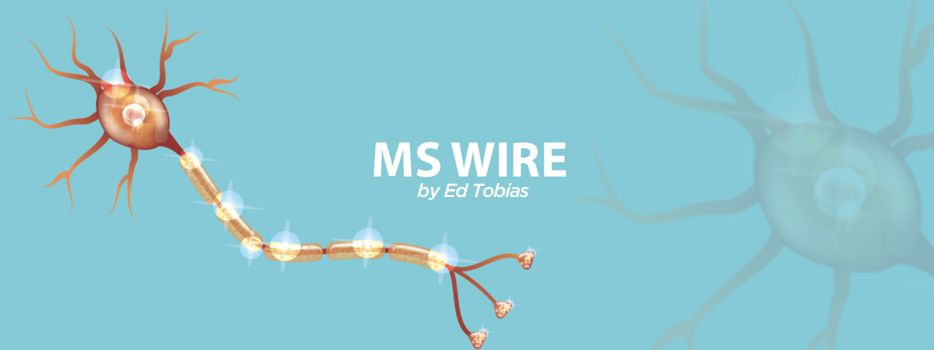MS News That Caught My Eye Last Week: COVID-19 Survey, MSVirtual2020, Zeposia, B-cells

COVID-19 Pandemic Had Minimal Emotional Impact in Progressive MS Patients, Survey Finds
I beg to differ. I have secondary progressive MS, and COVID-19 has bummed me out. I haven’t been in an exercise room since May. My wife and I haven’t had a meal in a restaurant since late February, not even outside. No card games with friends. Only recently have we seen our son, daughter-in-law, and grandkids face-to-face.
I agree with the study’s lead author, Nancy Chiaravalloti, that, “People with progressive MS appeared to have adapted more effectively to the lockdown conditions.” As Chiaravalloti suggests, perhaps that’s partly because we already have adapted to some isolation in our lives. We’re also used to sacrificing in order to stay safe. But if the pandemic has had an impact on our psychological well-being, as the survey also reports, how could it not have impacted our quality of life?
What do you think?
While the COVID-19 pandemic had an impact on the psychological well-being of people with progressive forms of multiple sclerosis (MS), it led to minimal changes in depression, anxiety, and quality of life, according to data from an international survey.
This was true even for the 4% of patients who reported contracting the virus, which otherwise was found to worsen MS-related symptoms and daily limitations.
Click here to read the full story.
***
#MSVirtual2020 – Meeting Focus Is on Advances in MS Research, Diagnostics, and Technology
Every three years, the top minds in MS treatment and research meet in a joint ACTRIMS/ECTRIMS meeting. This year, the meeting was held virtually from Sept. 11 to 13. Agenda topics included advances in brain imaging, machine learning, using disease biomarkers to allow personalized treatment approaches, and the latest on the MS-gut-brain connection. Many stories will be coming out of this conference over the next several days, but here’s a hot-topics summary.
The MSVirtual2020 meeting, the largest international conference dedicated to multiple sclerosis (MS) research, focuses on advances and breakthroughs made in MS causes and risk factors, diagnostic tools, treatment response biomarkers, technology, and therapies and interventions.
Click here to read the full story.
***
#MSVirtual2020 – Zeposia Still Prevents Relapses in Relapsing MS Patients After 3 Years, Trial Data Show
Zeposia is one of the new kids on the DMT block, but there’s enough data from its clinical trial to present a three-year report card. That report, presented at this year’s ACTRIMS/ECTRIMS meeting (see above), says the medication remains effective and safe after being used for three years. Let’s hope the same thing will be reported three years from now.
Zeposia (ozanimod) oral capsules continue to safely and effectively prevent relapses and disability progression in people with relapsing forms of multiple sclerosis (MS), according to three-year data from a Phase 3 extension clinical trial.
“Gaining insight into long-term therapeutic outcomes can enable clinicians to identify the most appropriate treatment approach for their multiple sclerosis patients,” Bruce Cree, MD, PhD, said in a press release. Cree is the trial’s investigator and clinical research director at the University of California San Francisco’s MS Center.
Click here to read the full story.
***
Targeting B-cells in Cerebrospinal Fluid May Lead to More Effective MS Therapies, Study Suggests
B-cells are targeted by a number of disease-modifying therapies developed in recent years. It’s thought that they play a role in the destruction of the myelin that insulates our nerve cells. But are B-cells in spinal fluid different from those in our blood, making them more difficult for a DMT to attack? This study aimed to find out.
Immune B-cells are more abundant and have a pro-inflammatory profile in the cerebrospinal fluid (CSF), the fluid that bathes the central nervous system, compared to blood in people with relapsing-remitting multiple sclerosis (RRMS), a study reports.
The results suggest that therapeutic strategies targeting the CSF B-cells could constitute a new and effective approach to manage MS symptoms, especially in treatment-resistant patients.
Click here to read the full story.
***
Note: Multiple Sclerosis News Today is strictly a news and information website about the disease. It does not provide medical advice, diagnosis, or treatment. This content is not intended to be a substitute for professional medical advice, diagnosis, or treatment. Always seek the advice of your physician or other qualified health provider with any questions you may have regarding a medical condition. Never disregard professional medical advice or delay in seeking it because of something you have read on this website. The opinions expressed in this column are not those of Multiple Sclerosis News Today or its parent company, Bionews, and are intended to spark discussion about issues pertaining to multiple sclerosis.







Leave a comment
Fill in the required fields to post. Your email address will not be published.